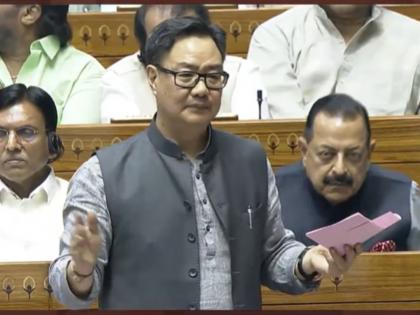Waqf Amendment Bill: What Will Change If Bill Is Passed in Parliament?
By Lokmat English Desk | Updated: April 2, 2025 15:11 IST2025-04-02T15:11:01+5:302025-04-02T15:11:33+5:30
The Waqf Amendment Bill is currently being debated in Parliament, with the ruling NDA having enough votes to pass ...

Waqf Amendment Bill: What Will Change If Bill Is Passed in Parliament?
The Waqf Amendment Bill is currently being debated in Parliament, with the ruling NDA having enough votes to pass it. However, opinions on the bill within the Muslim community remain divided. If the Waqf Amendment Bill comes into force, several major changes will take effect. The tribunal’s decision will no longer be considered final, as claims can now be challenged in civil courts, High Courts, and the Supreme Court. Additionally, it will become more difficult for the Waqf to claim ownership of any land—only donated land will be recognised as Waqf property. Moreover, all Waqf properties will be registered on a designated portal.
If the Waqf claims government property, an inquiry will be conducted before any decision is made. Claims over land based solely on usage will not be accepted. However, there will be no interference in Waqf properties where prayers are offered or in already registered Waqf assets. Notably, Waqf claims on properties in tribal areas will no longer be permitted.
Another key change is that decisions regarding Waqf land ownership will now rest with an officer of a higher rank than the district collector, who will submit reports to the state government. This officer will also be appointed by the state government.
Also Read | Waqf Amendment Bill: AIMPLB to Launch Nationwide Protests If Bill Passed in Parliament.
The Waqf Tribunal will be restructured to include three members: an expert in Muslim law, a former or current district judge as the president, and a state government official of joint secretary rank.
The bill also grants the central government the authority to modify rules regarding the registration and publication of Waqf accounts. Additionally, the government will have the power to conduct audits through the Comptroller and Auditor General (CAG) or an appointed officer. Furthermore, the bill allows for the creation of separate Waqf boards for Bohras and Aga Khanis.
According to the latest data from the Waqf Asset Management System of India, there are 8,72,804 registered immovable Waqf properties, along with 16,716 movable properties.
Open in app